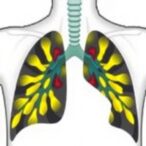Ventyx Biosciences’ cardiovascular disease drug cut levels of a biomarker for stroke and other serious risks by almost 80% within a week.
The San Diego-based biotech has been evaluating the oral NLRP3 inhibitor, dubbed VTX3232, in a phase 2 study of 175 patients with cardiovascular risk factors and obesity. The study’s primary endpoint was safety, and Ventyx concluded that the drug was safe and well tolerated as a monotherapy and as an add-on to Novo Nordisk’s semaglutide.
The proportion of patients with treatment-emergent adverse events was similar between the VTX3232 and placebo cohorts at 46% and 49%, respectively.
When it came to the secondary endpoint of reducing high-sensitivity C-reactive protein (hsCRP) over 12 weeks, VTX3232 as a monotherapy was tied to a 78% reduction in the biomarker compared to a 3% increase among the placebo cohort. In addition, 69% of patients who received VTX3232 achieved their target hsCRP level of less than 2 mg/L.
HsCRP is assessed via a blood test that measures levels of C-reactive protein, which is produced by the liver. Higher levels of CRP indicate more inflammation in patients’ bodies. The test can help determine risks for heart disease, heart attack and stroke, among other things.
Patients who received VTX3232 monotherapy also saw “statistically significant” reductions in other cardiovascular disease biomarkers, namely IL-6, Lp(a), fibrinogen and ESR, according to the biotech.
When it came to combining VTX3232 with semaglutide, the ingredient in Novo’s blockbuster obesity drug Wegovy, Ventyx only said the regimen demonstrated “significant reductions in hsCRP, IL-6, fibrogen, ESR, Lp(a) and liver inflammation over semaglutide alone.”
A “statistically significant reduction in liver inflammation,” as measured by cT1 levels, was also seen by patients with at least 5% baseline liver fat who received the combo treatment, the biotech noted.
VTX3232 didn’t lead to any weight loss when given as a monotherapy or offer additional weight loss to that induced by semaglutide when given as part of a combo treatment.
Related
Investors seemed satisfied with the latest readout, sending Ventyx’s stock soaring 84% to $7.10 in early trading Thursday from a Wednesday closing price of $3.86.
“We are very pleased with the results of this study where an ~80% reduction in hsCRP was achieved within the first week of dosing and maintained throughout the full 12-week dosing period in participants with measurable drug levels,” Ventyx CEO Raju Mohan, Ph.D., said in the Oct. 22 release.
“VTX3232 also restored nearly 70% of study participants to target hsCRP levels of less than 2mg/L, the critical threshold for determining residual inflammatory risk,” Mohan noted. “The effect we see in this study on IL-6, hsCRP, Lp(a), and other markers of aberrant systemic inflammation, leads us to believe VTX3232 holds promise for a new generation of oral anti-inflammatory therapies that, orthogonal to lipid lowering, may further reduce the risk of cardiovascular events.”
Ventyx Chief Medical Officer Mark Forman, M.D., Ph.D., agreed the results “support further development and VTX3232’s potential to address the high burden of disease caused by inflammation.” However, the biotech is holding back its plans to further develop VTX3232 for “future disclosures.”
Ventyx has also been exploring the use of VTX3232 in Parkinson’s disease via an ongoing phase 2 study.



